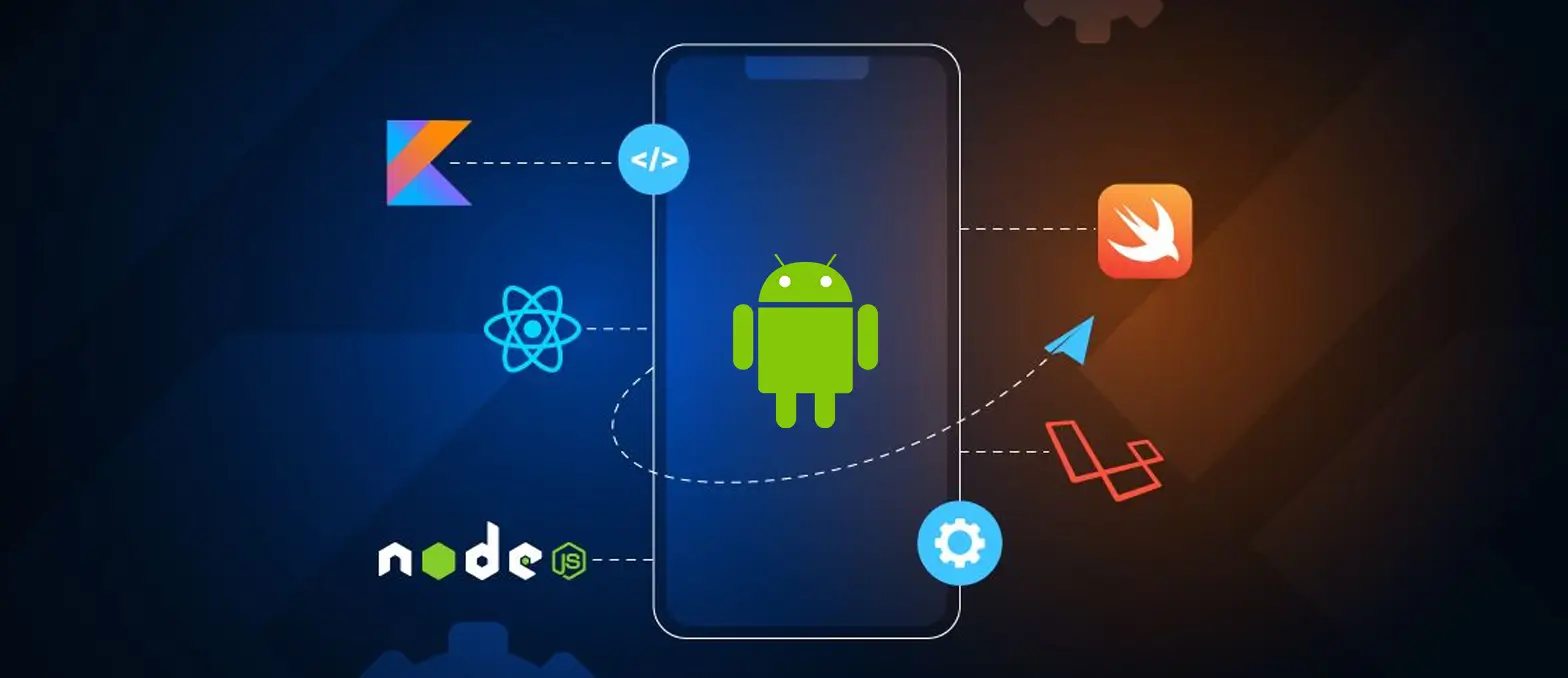Hospital automation and robotic process automation (RPA) are playing an important role in the global healthcare sector, which bravely faces a set of challenges and wait-listed medical procedures, skill shortages, and an elderly population.
Well, the healthcare providers are thinking about the steps towards reducing inefficiencies in all areas of providing treatments. The goals encompass nearly everything from making appointments and interoperability of applications with patient data, to reducing waiting time and managing financial applications more effectively. If you really want to use RPA in healthcare industry then you require RPA consulting services.
Table of Contents
Introduction
RPA, or Robotic Process Automation, is being adopted broadly within many industries, including healthcare. While hospital automation is not the first industry that typically comes to mind regarding healthcare, this is how RPA in healthcare is changing the course of care delivery. There is a general demand for services that are faster and more precise. In response, healthcare providers are turning to RPA to do many repetitive tasks so that staff can devote their attention to what is important: caring for patients.
Can you just imagine if automation were used in data entry, appointment booking, and claims processing? Pretty much less paperwork time, more time spent with the patient, leading to proper care and better outcomes.
In this blog, we will explore everything about RPA in healthcare, the ongoing growth within the market, the benefits, use cases of RPA in healthcare industry, challenges and future trends, and tips on how to go about choosing just the right partner for your RPA journey.
RPA Insights
Robotic Process Automation for insurance processing and administration was in great use in healthcare to automate complex, rule-based processes. It works best for repetitive and time-consuming processes where there is also a great need for accuracy. The implementation of the RPA is part of the broader scope of its adaptivity in healthcare.
One such instance is in the process of insurance claims automation, which entails checking for entities such as patient information or genuineness, eligibility, and determination of benefits. Such a repetitive process will, thus, witness a speeding up in the length of time it takes to process the claims made by doctors, which basically boils down to assigning the freed staff to other tasks.
The use of automation technology extends to the appointment process, verification of coverage, checking availability, and sending out reminders with little or no human intervention.
Key Benefits of RPA in Healthcare Industry
RPA enhances accuracy in healthcare by assuring precise task execution. The benefits of RPA in healthcare industry are as follows:
1. Enhanced Accuracy and Decision-Making
Adoption of RPA ensures errors in critical healthcare tasks are considerably fewer, as there are no hitches due to manual handling of data. Such an enhancement in accuracy and consistency will positively impact decision-making, thus reducing risks associated with human errors.
2. Cost Reduction
The optimization of labor, time, and resources in the implementation of RPA will ensure that hospital automation proves fast, accurate, and needs minimal human intervention making healthcare operations sustained given increasing costs. The financial benefits will trickle down to the overall efficiency of such an organization, translating to better patient care.
3. Efficiency and Productivity in Work
In automating time-consuming activities, health personnel busy on less complex and strategic areas could now render better patient care, equalizing operational efficiency on one hand. It becomes the basis for efficiently managing health services to meet those challenges that modernity has thrown to their lap.
4. Better Service
This translates into better service. For the patient, by taking out most of the manual intervention and streamlining the processes, this contributes to shorter delivery time and careful consideration of each individual’s needs.
5. Employee Satisfaction
RPA stands out as prevention of monotonous activities for employees and thus less project burnout, resulting in, quite distinctly, better satisfaction in doing their job. Satisfied employees mean a healthy work environment, which in turn translates to an improved patient experience.
Difference Between Traditional Automation & RPA in Healthcare
RPA in healthcare industry leads to increased efficiency, reduced errors, and faster service. In general, there are two types of automation: the first is Robotic Process Automation (RPA), and the second one is Traditional Automation. While their goals are quite similar to streamlining processes, the way is different.
The following table highlights the main differences between Robotic Process Automation (RPA) and Traditional Automation.
| Feature | RPA (Robotic Process Automation) | Traditional Automation |
| Definition | Software robots that mimic human actions on computers | Rule-based systems that automate tasks using scripts and programs |
| Flexibility | Highly adaptable; can work across multiple applications | Less flexible; works within specific software |
| Implementation | Faster to deploy; no major system changes required | Requires heavy coding and system integration |
| Use of AI | Can include AI for decision-making | Mostly rule-based, without AI |
| Cost | Lower initial cost, quick ROI | Higher cost due to development and maintenance |
| Error Handling | Can detect and correct errors dynamically | Errors require manual fixes or reprogramming |
| Best for | Repetitive tasks like claims processing, data entry | Large-scale system automation like EHR integration |
| User Involvement | Works alongside humans, mimicking their actions | Usually runs in the background with minimal human interaction |
Use Cases of RPA in Healthcare Industry
Here we cover some of important use cases of RPA in healthcare industry, look at these use cases of robotic process automation in healthcare.
1. Patient Data Management
Automation in healthcare, RPA ensures accurate and consistent data by abstracting data from various sources like patient admission forms, investigation results, or doctor’s notes into EHRs.
Furthermore, RPA can automate data cleansing and validation tasks as well.
For instance, it can spot and comment on duplicate patient records or inconsistencies in background information. The issues can then be addressed by the staff. With accurate patient data in hand, clinician decisions about treatment plans are better informed, and better care coordination can be planned across departments or specialists.
2. Clinical Data Processing
Hospitals deal with enormous patient data such as medical records, lab investigations, and doctor’s notes. Manual data entry and organization is a time-consuming and error-prone process.
RPA automates this process of extracting, updating, and managing clinical data in real-time. This ensures that doctors and healthcare staff have proper clinical data updated with the latest information. Overall, it enhances the quality of care that patients receive and the possibility of decision-making.
3. Clinical Trial Management
Clinical trials need meticulous data collection, patient monitoring, and regulatory reporting work. RPA helps automate the somewhat tedious processes, such as recruitment and enrollment of patients into a trial, tracking trial outcomes, and report generation within the shortest possible duration. It ensures regulatory compliance, minimizes errors, and accelerates trials, bringing new treatments to market faster.
4. Data Migration and System Integration
Data migration from old systems to new ones is one of the more complex activities entailed by upgrading IT systems in a healthcare organization. The RPA automates the migration process, guaranteeing that the data is moved with accuracy and security.
The use of the RPA also brings together and integrates the different hospital software systems to facilitate effective communication and smooth departmental workflow among billing, pharmacy, and patient care.
5. Insurance Verification
Manual verification of the insurance details might take a long time. RPA autonomously checks insurance eligibility, preparing coverage validation by policy details and thus informing staff about coverage issues.
So this speeds up the whole procedure of approval besides reducing the rejection rate of claims and ensuring effective patient experience.
6. Fraud Detection
Fraud in the healthcare system with false claims and inappropriate billing incurs great losses. RPA can scan large data sets for unusual patterns and flag suspicious transactions.
This will enable the RPA to avert financial losses for the healthcare provider and allow early detection of any fraudulent activities.
7. Post-Discharge Follow-Up
Upon discharge from the hospital, follow-up steps are essential to avoid complications and allow recovery. RPA can send automated reminders for scheduled follow-up appointments, medication routines, and lifestyle advice.
It can also aggregate patient feedback and inform the doctors if more care is required. This increases patient outcomes while minimizing the likelihood of readmission to the hospital.
8. Medical Coding and Billing
Hospitals code their various treatments and send the bills out using these codes. Therefore, it becomes a time-consuming process involving human interface and leaves open the chance for mistakes to occur that could lead to dues denied or delayed payment.
By going through the patient records and instantaneously coding them with the correct codes, RPA automates medical coding.
9. Telemedicine Support
It also processes the billing requests more quickly so that administrative burdens are lifted and revenue cycle management is improved. By bringing telemedicine on board with computerized appointment scheduling for online consultation, RPA now plays a central role.
It makes automatic updates of EHR and prepares a digital prescription. The RPA also allows for secure patient-doctor information transfer, thus rendering telemedicine efficient and accessible.
10. Inventory and Supply Chain Management
Hospitals must provide an adequate stock of medicines, medical devices, and other supplies. Real-time tracking would be provided via RPA on the inventory levels; it would automatically place orders whenever the supplies are running low and track shipments.
That is, there is no shortage, less waste, and the assurance that the hospitals have, therefore, always got the supplies to see well when rendering care.
RPA in Healthcare Market Statistics and Trends
According to market analysis, RPA in healthcare is seeing immense growth.
- As per recent statistics, the global market for RPA is projected to grow with an enormous CAGR of 33.6% and touch a whopping value of $25.56 billion in 2027. This increase is attributed to the growing healthcare process facing such enormous demands for hospital automation, wanting to speed up efficiency and shut down costs.
- While 59% of surveyed healthcare organizations employing some mechanization pertaining to the automation have actually opted for some RPA under the auspices of AKASA, Market.us believes that another widening of acceptance is still going on in the industry, with RPA projected to grow at a CAGR of 26.1% throughout the years 2023-2032, surely indicative of its momentum that stretches far beyond the full decade.
- As per Statista, 56.2% of the therapeutic automation market falls under the purview of the global healthcare automation market (Market.us).
- Einstein suggested that RPA would be potent in providing timely support to those medical service providers in need of boosting some work processes, less load on hospital and clinic administrative executives, therefore boosting the quality of care rendered to patient customers.
Challenges of RPA in Healthcare Industry
The use of RPA in healthcare is fraught with a number of daunting challenges that organizations need to resolve convincingly.
1. Cyber Security
The most critical challenge for security is where data has to be in the auspices of patients. In the USA alone, around 13 million healthcare records are stolen and sold. It is simply because of human errors in the chain of security.
RPA in healthcare must enforce HIPAA compliance, advanced encryption, and strict access control to protect data from breaches and unauthorized access.
2. Voluminous Data Processing
Healthcare organizations deal with myriad healthcare information, such as patient records, lab findings, insurance data, and billing information. The manual processing of this information is, in fact, painstaking and error-prone. Legacy systems lock data in isolated formats, making integration and access challenging.
.
To perform data tasks through RPA, substantial preparatory actions have to be done beforehand to guarantee the correctness of data extraction, validation, and integration with existing systems. The heterogeneous nature of multiple sources and formats of data itself adds difficulties.
3. Curbing Escalating Costs
The various elements combine to draw forth a compelling narrative of unresolved issues simmering within the business landscape of health provision within Europe. Healthcare providers face the dueling challenges of reducing operating costs, maintaining quality care, and spending more and more emergency service revenue.
It becomes difficult to optimize resources with real-time operations without compromising on service quality. While RPA in healthcare systems help automate repetitive administrative tasks, the upfront investment and follow-up costs can be decidedly high. Organizations must Ensure that the cost savings from automation justify these expenditures and contribute to their long-term financial sustainability.
4. Staff Volatility
Over the next five years, more than 3.2 million low-wage staff in the healthcare sector, including medical assistants and home health aides, will be in demand. This poses a risk of a decline in the quality of healthcare services, adding further pressure on the already limited staff.
An RPA system used in medicine could play down the effects of this shortage by automating small, routine tasks so that healthcare workers can focus more on their critical responsibilities. However, in order to properly integrate RPA, staff must be re-educated and retrained to obtain new skills that would allow them to work with an automated system; this can pose a great deal of work.
5. Integration with Existing Systems
The integration of RPA into other existing healthcare systems is one of the greatest challenges confronting healthcare, yet also the EHRs and even older legacy systems. Furthermore, many healthcare systems are outdated, which does not allow for such a smooth interface when talking about new hospital automation tools.
Carrying out such integration involves a lot of customization work, which can take a lot of time and effort. Efficient communication between RPA systems and existing infrastructure is critical to supporting continuous work without service suspension.
6. Compliance with Regulations
The medical industry is heavily regulated and subjects itself to very high standards of data protection, patient confidentiality, and procedures of operation, and all the processes should comply with these rules. In this regard, establishing an RPA medical system that fulfills all regulatory conditions calls for the most frequent maintenance and up-to-date monitoring in case requirements change in the future.
Otherwise, fines might be imposed, and one’s reputation with the organization might suffer greatly. For example, a violation of the HIPAA regulations might lead to fines in the amount of $1,000, which is imposed for minor breaches, and up to $100,000, which is for more serious breaches.
Choosing the Best RPA Consulting Service: Key Factors to Consider
When selecting RPA services for the healthcare industry, you have to consider the following factors:
1. Industry Experience
A Enterprise RPA development company with proven healthcare automation experience is desirable; it should also have an in-depth understanding of industry-specific challenges and regulations.
2. Scalability
Choose a partner that offers scalable robotic process automation solutions as per your organization’s needs.
3. Integration Capabilities
RPA should easily be onboarded into your existing healthcare systems, such as EHR and practice management.
4. Compliance And Security
Ensure RPA’s provider offers solutions which are compliant with healthcare regulations like HIPAA and with maximum security built into data.
5. Support And Training
Look for a partner that provides comprehensive support and training to bring your team effective implementation and maintenance of the RPA solution.
6. Customization
Choose a partner that provides customizable RPA solutions that are tailored to your unique workflow and processes.
7. Flexibility
Select a partner that can provide ongoing support and maintenance for RPA solutions.
Conclusion
By far we know that the healthcare industry is growing day by day and, in daily life, faces multiple challenges. It includes increasing data volumes, rising costs, and tight regulations. RPA offers an efficient and cost-effective solution to streamline the process and find the issues. By automating repetitive tasks and integrating seamlessly with existing systems, RPA helps healthcare providers to focus on what really matters and accordingly deliver high-quality care to their patients.
Well, the future of RPA in healthcare industry sounds bright, with exciting developments coming in intelligent hospital automation . By adopting this advanced transformative technology, well-known healthcare providers will help you to create possibilities that enhance patient experience. With a RPA development company who has a good reputation, health care companies would be able to tackle the challenges of implementation. They could maximize their return on their investment in hospital automation.
At A3Logics, we can create efficient, patient-centered healthcare applications with RPA integration.







